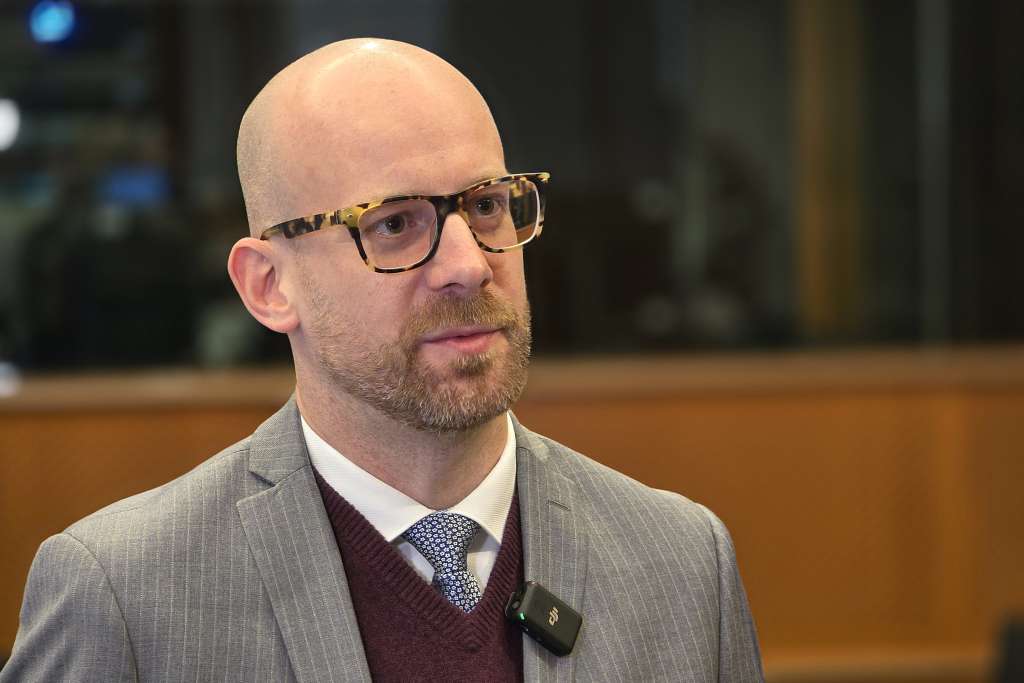
Brussels, (Fena) – Ondřej Kolář, the European Parliament (EP) rapporteur for Bosnia and Herzegovina, expressed his concerns about the situation in BiH during an interview with Bosnian journalists. He pointed out that local politicians tend to shirk accountability, hinder reform efforts, and depend on external influences rather than taking decisive action themselves.
– To speak candidly, I feel quite pessimistic about the current state of Bosnia and Herzegovina. My observation indicates that numerous public officials prefer to rely on outside actors and avoid taking responsibility for the necessary reforms that could advance the country. They seem to depend on others for decision-making, using this reliance as an excuse for their inaction and incompetence. When external decisions are made or imposed, they often criticize those choices, claiming they could have done better, even though they haven’t demonstrated the ability to do so. This mentality inevitably stalls both internal reforms and progress towards European Union (EU) integration – stated Kolář.
He noted the importance of visiting Bosnia and Herzegovina to engage with politicians, civil society, and the public to gain an accurate understanding of the situation on the ground.
– Observations from a distance are vastly different from engaging directly with people. I aim to ground my report in facts rather than impressions, which is why I am eager to return to BiH and speak with all relevant stakeholders. I have done so in the past while preparing previous reports. The process involves first receiving a draft report from the Commission that assesses the country’s progress and reforms, which we then review and vote on in Parliament to determine our stance – added Kolář.
He emphasized the significance of communication between the European Parliament and its counterparts in the Parliament of Bosnia and Herzegovina.
Kolář singled out Milorad Dodik as a key obstacle to reform in Bosnia and Herzegovina.
– I am unaware of any behind-the-scenes negotiations involving Mr. Dodik. The EU maintains its principles firmly, especially regarding the rule of law, which is crucial. Straying from these principles would jeopardize the entire process. Frankly, I believe Dodik contributes to the stagnation of reforms in BiH. It is unclear whether he desires EU integration for BiH or aims for isolation or even the disintegration of the country, favoring the annexation of the Republic of Srpska to Serbia. His actions are unacceptable to the EU, which is, unfortunately, supported by some countries like Hungary that seek to create disorder — noted Kolář.
He highlighted transparency as a core principle of democracy, especially in electoral processes.
Many politicians in the Western Balkans and the EU fail to grasp the meaning of transparency and its necessity in public communication.
– If politicians conceal information, they cannot expect public trust. Transparency and trust are interconnected. As long as politicians in candidate countries refuse to reform the electoral process for complete transparency, it will be challenging to convince others of their commitment to becoming part of the democratic world. This is a shared challenge that requires concerted efforts. I firmly believe in the need for fundamental and robust reforms – said Kolář.
He remarked that citizens of Bosnia and Herzegovina should elect leaders who recognize that the Dayton Agreement is a temporary solution, one that impedes the nation’s progress, effectively rendering BiH a protectorate.
Regarding the chief negotiator for Bosnia and Herzegovina with the European Union, Kolář stressed that the individual must represent the interests of the entire country rather than a single ethnic group.
– I worry that politicians in BiH often act within the confines of their ethnic identity and perceive themselves as representatives of only one group. If this perspective influences the selection of the chief negotiator, then progress will be stunted. Although I do not intend to dictate to BiH which political body should choose this individual, my message is clear: responsible politicians must recognize that this person will represent the interests of the whole nation, not just a segment – said Kolář.
In his conversations with Bosnian journalists in Brussels, he shared his concerns that some politicians in Bosnia and Herzegovina may be manipulating the European Union.
– Based on European Commission reports and my own observations in BiH, I question the sincerity of those claiming to implement reforms, and whether they genuinely believe such reforms are necessary. Thus, I remain cautious. Dialogue—both internal and external—is crucial for progress. If advances are lacking, dialogue should clarify the reasons for stagnation, enabling us to offer assistance. The EU is not here to make decisions on













Leave a Reply